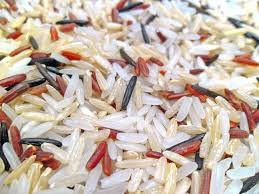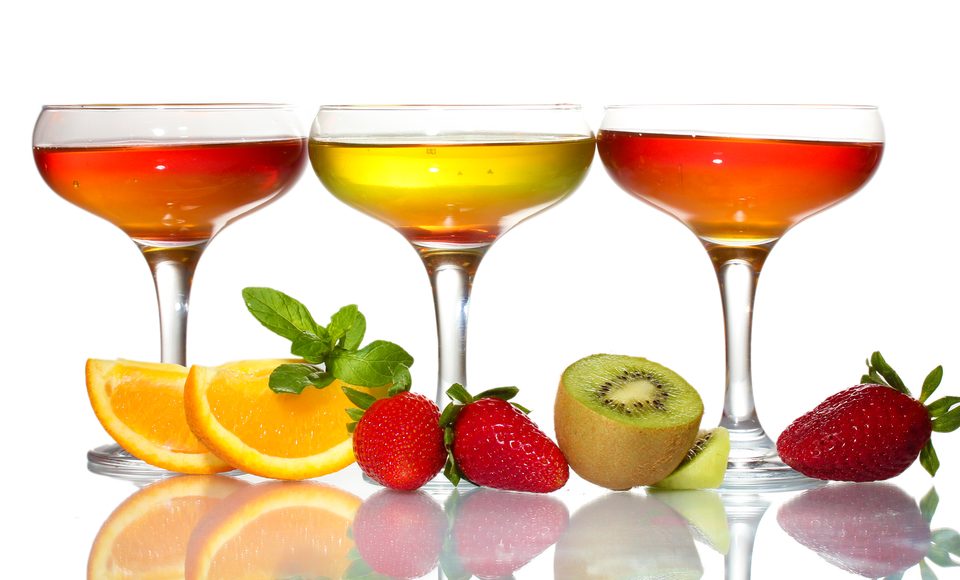It’s time to go past the same thyroid nutrients you have heard of before, like selenium and iodine, and really explore the other nutrients that can truly help our thyroid thrive. These nutrients for thyroid health are also critical to your overall health, so let’s take a look and learn more about some of the more unexpected nutrients that can benefit our bodies today.
- Have any questions?
- 480-631-7837
- support@in-goodhealth.com

Thyroid Medication: When Is It Necessary, and When Isn’t It?
December 5, 2023
3 Lesser Known Sources of Fluoride Harming Your Thyroid
December 9, 2023
Thyroid Medication: When Is It Necessary, and When Isn’t It?
December 5, 2023
3 Lesser Known Sources of Fluoride Harming Your Thyroid
December 9, 2023Today, let’s look at the 7 rare nutrients that your thyroid needs to thrive:
Trimethylglycine(TMG)
The fact of the matter is that a lot of critical chemical reactions in your body involve methylation. When your genes are off, such as when you have an MTHF-R gene defect, your body cannot methylate as well as it once did. That is why methylated glycine is a good way to improve upon that reaction.
What do these methylation reactions do? Well, they help to detox mercury and they help to raise our serotonin levels. As you might know, raising your serotonin actually helps to combat depression and anxiety.
While we can find TMG in supplements, we can also find it in beets. These handy root vegetables actually have a compound called betaine, which we could consider a more natural form of TMG.
In Conclusion: One of my favorite rules when it comes to eating is that the more a certain food can stain your tablecloth or your shirt, the better that food is for you! Beets are a great example of that rule and they are really great when it comes to helping get more TMG into your system.
Molybdenum
It might not be as popular as calcium or zinc, but molybdenum is an essential mineral that can really help to benefit our bodies – especially when we are looking to help our thyroid thrive. It actually plays a big part in regulating fluoride throughout our body.
When we are lacking in molybdenum, there is a greater chance that we might be building up more fluoride in our thyroid – which is definitely bad.1
Molybdenum is also very important when it comes to:
- Many of the phase 1 liver detox reactions
- Sleep quality
- Energy production
Molybdenum can be found mostly in grains and beans and here is where we find ourselves in a bit of a “paleo pitfall.” While I do love so many facets of the paleo diet, since we all do better with high-quality protein, lots of vegetables and fresh foods in general, it is a problem when we start cutting out intact whole grains and legumes.
Key Insight: If you are not getting whole grains and legumes in your diet, you are risking losing your molybdenum intake almost entirely. Alongside fiber and other important nutrients that your body needs.

There really is no other way to get more molybdenum in your foods than in grains and beans. Personally, I am a big fan of all types of legumes like:
- Black Beans
- Pinto Beans
- Navy Beans
- Northern Beans
- Cannellini Beans
- Split peas
They are all so good and they are good for you! There are also intact whole grains, such as:
- Wild Rice
- Black Rice
- Quinoa
- Teff
- Kamut
- Oats
Better overall supplementation will have molybdenum, but it is so important that we get it – and other important nutrients – from these legumes and grains.

Methycobalamin
As I mentioned before, if you have thyroid disease you might not be methylating all that well. That means that you could definitely be having some trouble absorbing more B12 into your system. If you do not have B12, or you do not methylate it, it can be a big problem. Methylcobalamin is a good way to get more pre-converted B12 into our bodies, but we need to make sure that we are getting good amounts of TMG – in order to make sure that we can methylate it properly.
Your red blood cells are composed of the same things as your white blood cells. When you make them into red blood cells, though, you are shrinking them a great deal. That’s because they have to be tiny in order to make their way around your body – so that they can spread oxygen. You need oxygen everywhere, but it is especially important in your brain and nervous system.
Key Insight: B12 allows for your red blood cells to shrink enough, so that they can do a good enough job of getting oxygen to all of the most important parts of your body – like your brain.
When you do not have enough B12, you have what is known as megaloblastic anemia.2 This means that the red blood cells simply cannot shrink small enough to make their way around your body.
Without supplementation, we cannot get enough B12 for our bodies without eating animal-based foods. While we might get it from dairy and eggs, it does not come in enough quantities to really make a big difference. That is why, in order to get more B12, we need to rely on either animal flesh foods or better supplementation overall.
In Conclusion: A few micrograms of methylcobalamin can go a really long way towards general health. It can help protect our brain cells from toxins, help oxygenate our blood for better energy and can heal nerve pain, too.
Hesperidin
Hesperidin is a special bioflavonoid and can benefit those who have thyroid disease and have problems with connective tissue formation. This can lead to:
- Dry Skin
- Varicose Veins
- Easy Bruising
- Hemorrhoids
Hesperidin is the best solution to all of this. It can help skin repair for those with hypothyroidism and it may even lower blood pressure.3 It also helps:
- Protect the blood vessels
- Lowers histamine in order to reduce allergy symptoms
- Improves circulation
- Lowers bad cholesterol
You can actually find hesperidin in the inner lining of citrus peels, otherwise known as pith. It is actually nice to the taste and, as we have learned, it can help our bodies get more hesperidin.
Key Insight: Want to know how to get more pith into your diet? Do not peel back your oranges! Instead, use a vegetable peeler and get rid of the outer layer of rind, and leave a nice layer of pith that you can enjoy with your orange.
Another food that is really high in hesperidin is buckwheat, which is definitely another favorite food of mine (Read: Are you eating buckwheat). It is also excellent for your connective tissues and is slowly metabolized.
Vitamin K2
It is also known as menaquinone, vitamin K2 is a vitamin which can help protect your bones. We can mostly find it in fermented foods, like:
- Miso
- Natto
These are two of the “denser” sources of K2 that we might be able to include in our diets. I would definitely recommend that we enjoy more miso in our lives, because the fermented version of soy actually can have a positive effect on our thyroid4 and can help benefit our gut flora.
You might not have heard of natto before, but the next time you are at a sushi place go ahead and ask for a roll including natto. It can be brown like rice, and it can be stringy like cheese, but it has a unique taste all to itself that you absolutely have to try. Natto might be an acquired taste, but it is also ridiculously healthy and you should try to incorporate some of it in your diet – even if it takes a little while to get used to it.
Vitamin K2 has also been shown to have positive effects on cardiovascular health, too.5 That is why a little bit more K2 can go a long way when you are looking for more nutrients for your thyroid – and for your body, overall.
Vitamin D3

The interesting thing about vitamin D is that we have learned a lot about there being a certain “sweet spot” with regards to how much we are getting. Too little can cause a whole bunch of problems (like thyroid autoimmunity), but so can too much. So, getting a good balance is going to be critical.
Key Insight: The “sweet spot” for vitamin D is going to be 40 – 50 nanograms per milliliter of blood. If you are much lower, you will be looking at deficiency problems, and if you are higher you might be looking at lower longevity benefits.
When we get vitamin D, we want to get it in our food. We need fat in order to absorb vitamin D, so this is going to be critical.
I have found that 3000 – 5000 IUs per day will put people into that sweet spot, but many folks (around 60 – 70%, in my personal experience) need more. That is why testing is such a good idea, so that you can get a dialed in idea of how much vitamin D you need so that you are permanently within that sweet spot.
Thiamine
The last “little known” thyroid nutrient for better thyroid health is going to be thiamine. We need thiamine in order to help D3 cross the cell membranes in our body. This is going to help over 200 reactions in our body, overall, so we know that it is important to keeping our body up and running.
Key Insight: Thiamine is absolutely essential for energy production. It turns out that 25% of hospital patients are actually deficient in it, which can be caused by both stress and various medications.6
We can get the proper amount of thiamine from supplementation, but it is always important to note that stress, medications and alcohol can deplete our body’s reserves of this important nutrient.
Common Nutrients You Want To Avoid
Since we have covered the lesser known nutrients that we might want to include in our diets, there are two common nutrients that I think we might want to start avoiding. These include:
- Supplemental Iodine
- Folic Acid
When it comes to iodine, we can already find it in our thyroid medications. Bringing more into our diets can actually push us into dangerous territory. As I have talked about before, too much iodine – and too little – is definitely not a good thing (Read: A comprehensive guide to goitrogens and hashimotos). This can also worsen Hashimoto’s autoimmunity.
The next is folic acid. Those with thyroid disease carry the MTHF-R gene abnormality, which means that extra folic acid in your system can raise your cancer risk and make it harder to make essential neurotransmitters. It essentially acts as a carcinogen, which is not good. Those who have had issues with processed grains, are the same who have had issues with folic acids.
How Complete is Your Multivitamin Regimen?
Is now the time to start thinking more about how many pills you take in a day? What supplements are you using and how much do you know about how they are working for your body? Let’s take a second to compare our supplements with the Daily Reset pack (Click Here) and learn a little bit more about the thyroid nutrients and supplements that can have us feeling our best today.
1 – https://www.ncbi.nlm.nih.gov/pmc/articles/PMC3890436/
2 – https://www.ncbi.nlm.nih.gov/pmc/articles/PMC1570488/
3 – https://www.ncbi.nlm.nih.gov/pubmed/18388414
4 – https://www.ncbi.nlm.nih.gov/pubmed/16571087
5 – https://www.ncbi.nlm.nih.gov/pmc/articles/PMC4566462/
6 – https://www.ncbi.nlm.nih.gov/pmc/articles/PMC3659035/

P.S. Whenever you are ready, here is how I can help you now:
- Schedule a Thyroid Second Opinion with me, Dr. C, Click Here for Details
- Need help to choose supplements? Click ‘Help Me Decide Here'
- Get my top books Here
Dr. Alan Glen Christianson (Dr. C) is a Naturopathic Endocrinologist and the author of The NY Times bestselling Hormone Healing Cookbook, The Metabolism Reset Diet, and The Thyroid Reset Diet.
Dr. C’s gift for figuring out what works has helped hundreds of thousands reverse thyroid disease, heal their adrenals, and lose weight naturally. Learn more about the surprising story that started his quest.








